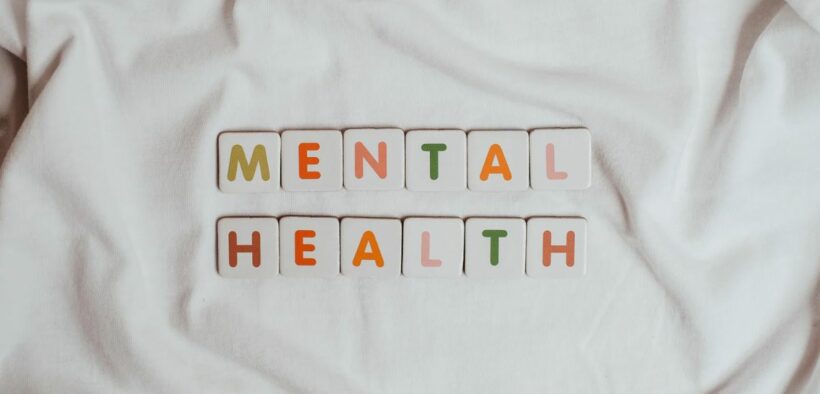An alliance of mental health bodies recently released a report detailing the concerns of mental health psychiatrists, psychologists, doctors, nurses and peer workers and outlining the need for a committed systemic reform of the mental health system and investment to avoid a health catastrophe.
The RANZCP survey’s conclusions are that the mental health system is severely under-staffed and the financial burden on consumers to get mental health support and treatment is too high. While these are very valid concerns, the survey did not include the voice of mental health consumers and carers, which means the RANZCP report is not comprehensive as it does not include the voices of all parties involved and impacted. Let’s not forget that the mental health system exists to support people with mental health challenges.
A systemic mental health sector reform is overdue, but the solution needs to go beyond the need for more funding. It needs to be people-centric and trauma-informed, and the sector needs to elevate the role and importance of peer workers. Embracing the lived experience of peer workers and carers is an innovative and creative way to improve the current triage system and long waiting times, all while making sure mental health consumers get the support they need, at the time that they need it.
According to BEING’s recent survey, only 35% of mental health consumers found that seeing a mental health professional or a psychiatrist who provided a prescription was very helpful. 84% said they want to talk to someone who doesn’t judge them, 79% want to talk to someone who shows empathy and 73% want to talk to someone they can trust and open up to. That’s where dealing with people with lived experience such as peer workers and carers can make a significant difference in how mental health consumers can access the kind of support they need, at the time they need.
The current mental health system has very limited choices for mental health consumers who want support and help. They first need to go to the GP to get a referral to see a mental health professional, and we know that it can take months before they are able to see someone. In the meantime, they are left on their own to deal with their mental health challenges. This is where the current system is failing mental health consumers.
Placing peer workers and carers on an equal footing as clinicians and psychiatrists will provide mental health consumers with more support that can be more readily available. It means, they won’t need to wait to see a psychiatrist but they will be able to be supported by a peer worker or a carer straight away. Just adding this as an option to mental health consumers can help alleviate some of the symptoms they are experiencing at the time or while they wait to be seen by a clinician.
Over two-thirds of individuals who die from suicide do not receive professional mental health support*. This indicates a concerning mistrust in the system by individuals who have little to no faith that they can get help. This is greatly due to the fact that mental health support is treated as one size fits all, leaving consumers with little to no choices on how and where to find help.
Initiatives such as Safe Havens or non-hierarchical, multi-disciplinary teams are successful because they are informed by lived experience and they deliver great outcomes for the consumer, quickly and affordably. Peer workers and carers need to be at the centre of the systemic reform NSW so urgently needs in order to avoid another mental health crisis in the future.
Read more by Priscilla: Federal Budget to miss the mark if community-based preventative programs and a national anti-racism strategy aren’t addressed
Priscilla Brice is the CEO of BEING – Mental Health Consumers, the peak body advocating on behalf of consumers for mental health systemic advocacy in NSW. Priscilla identifies as neurodivergent and has lived experience of mental health challenges throughout her life.
Prior to leading BEING, Priscilla founded and was Managing Director of All Together Now, a racial equity organisation based in Sydney. Priscilla lead many racial equity projects over 12 years, including the Monitoring Racialised Discourse project which focussed on racism in mainstream media, the Community Action for Preventing Extremism (CAPE) project which focussed on preventing young people from becoming involved in far-right extremism, and the award-winning Everyday Racism mobile phone app. Prior to this, Priscilla held roles at Australians for Native Title and Reconciliation (ANTaR) and Oxfam Australia.
Priscilla is a Graduate of the Australian Institute of Company Directors (GAICD), has an MBA in Social Impact from the University of NSW and a Churchill Fellowship.
Jonathan Harms was born in Perth, Western Australia, studying Arts and Law at UWA. Graduating in 1997, his first job was in capital works for the HDWA Mental Health Division. Since that, he has worked in various capacities for MPs, as a plaintiff lawyer and in government, community managed organisations and private corporations.
He joined Mental Health Carers (ARAFMI) NSW in 2009, becoming CEO in 2012. He initiated various engagement processes including the Carer Peak Advisory Committees, Carer Support Worker Forums and the Mental Health Carer Advocacy Network, as well as process development within MHCN, with the organisation achieving accreditation in early 2021.
He is a current board member of the Mental Health Coordinating Council and recently, co-led MHCN’s successful bid for the delivery of a state-wide systemic advocacy service for people experiencing psychosocial disability under the Disability Advocacy Futures Program (DAFP).


































































































































































